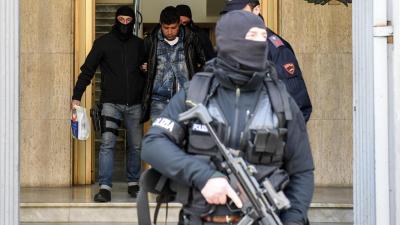Anis Amri terror cell 'wanted Rome metro attack'

ROME – The terror cell associated with Anis Amri, the perpetrator of the massacre at a Berlin Christmas market in 2016, considered a strike in the Italian capital itself, with an attack on a metro station in the west of the city.
According to La Repubblica, throughout the month of June 2015, Amri and six other Tunisians had met after prayers druing the holy month of Ramadan in an Islamic centre on Via Chiascio in the city of Latina. The topic of conversation amongst the group was a plan to attack the Laurentina metro station in Rome.
The claims follow the arrest of five Tunisians on Thursday on terror charges. They are accused of being the group that not only facilitated Amri’s departure from Italy to Germany, but that, in the report of the paper, had also considered acting themselves.
The Islamic centre appears to have acted as a centre for radicalisation, with allegations that its president was one of those involved in the meetings.
In total, 10 suspects were placed under investigation during an enquiry, codenamed “Mosaic,” that Italian police began after Amri’s death in a shootout Milan on Dec 23, 2016.
It is believed that the investigation was able to use the testimony of Montassar Yaakoubi, another Tunisian currently detained for trafficking, who arrived in Lampedusa alongside Amri in 2011.
Amri is said to have taken Yaakoubi to meet some “Tunisian friends” in Latina. The latter is not believed to have been radicalised but hoped to use the men to obtain false documents to travel.
In July 2017, after his arrest, Yaakoubi is said to have told investigators of the conversations held with the potential terror cell in Latina and the plans to bring Islamic State terror to the symbolic centre of Christendom.
The plan was aborted and indeed, may never have been truly operational. Amri left Italy, alongside two other members of the group not long afterwards.
Rome’s prosecutor revealed on Thursday that investigators had intercepted phone calls between two other members of the cell in which they discuss the reasons they “hate living in Europe” and the need “to cut their heads and genitals.”
However, there remain questions as to the speed with which Italian authorities acted to round up the cell. At least three of those in the investigation were expelled from Italy between March 2016 and March 2017.
tw


